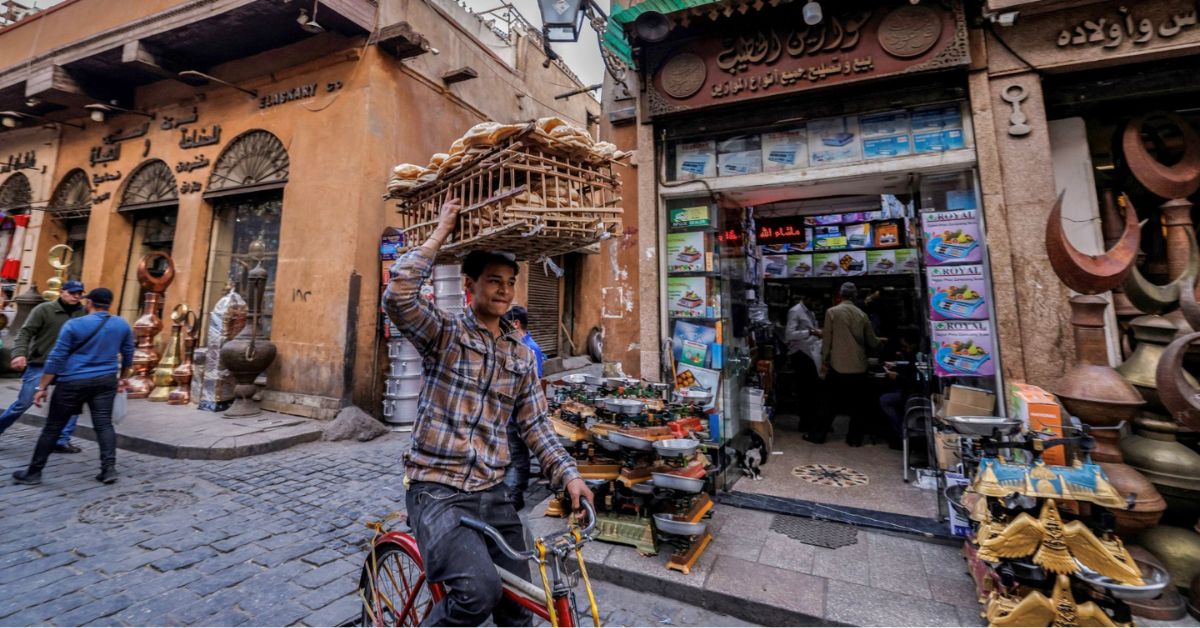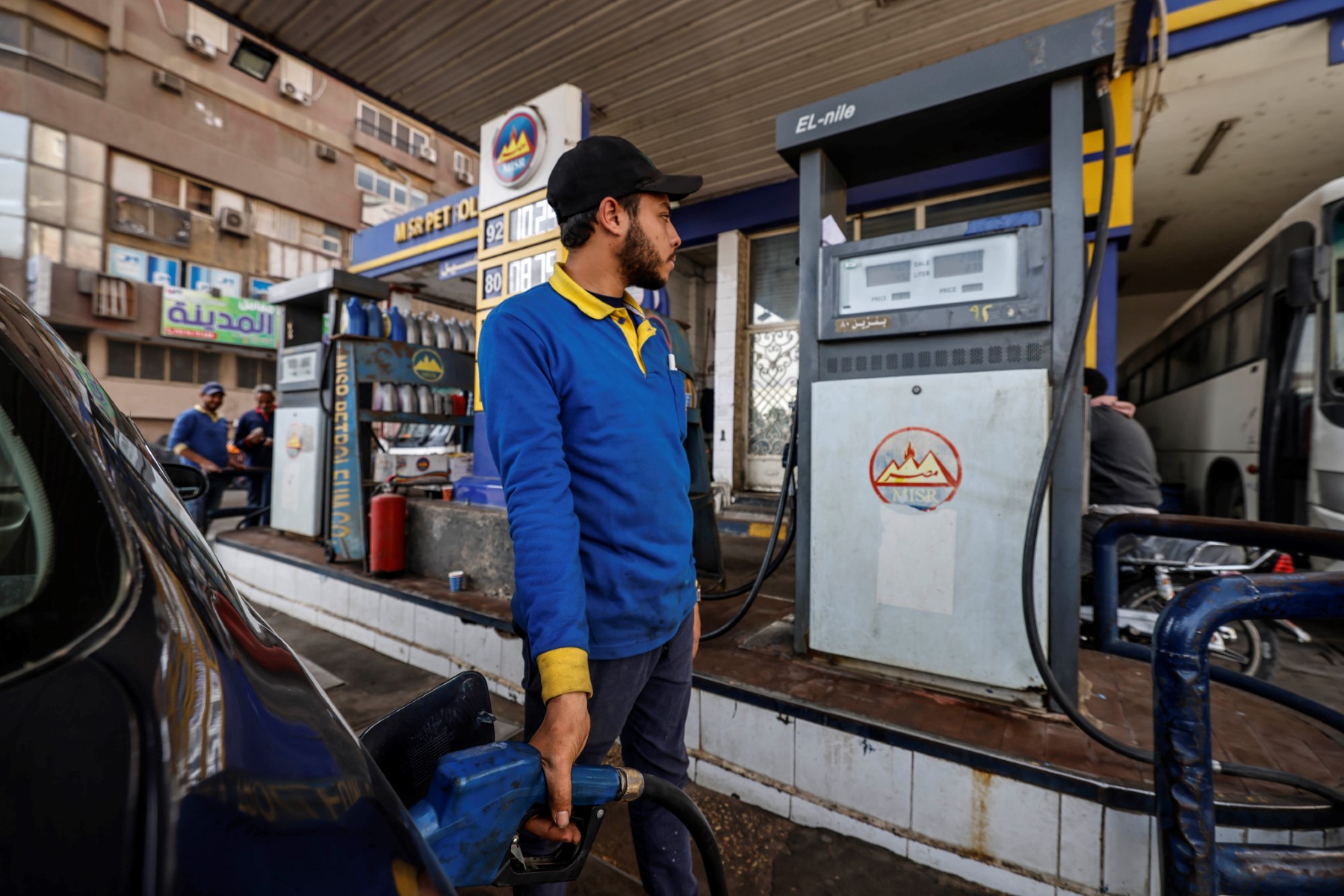CAIRO, EGYPT — Like many thousands of others in the crowded city of Cairo, Sarah Mahmood, too, has found life to be tough during the last few years. The 30-year-old marketing executive has seen the value of her income dwindle precipitously, with every successive paycheck buying her fewer and fewer things.
For the last many months, she had set aside money from her salary to buy herself a new car. Each time she feels she has saved enough for the purchase, the Egyptian currency takes a tumble, making Sarah’s wish all the harder to fulfill.
And for common Egyptians it is equally a struggle to purchase items as diverse as bread, laptops or smartphones.
A World Bank report titled “Food Security” showed a rise in inflation rates for food commodities across the world. Still, the report revealed that Egypt is among the countries most affected by inflation in food commodity prices, with an inflation rate of 37.3 percent in food prices during 2022, achieving 16 percent real inflation in food prices, making it the sixth highest country in the world.

With the Egyptian currency sliding against the US dollar, analysts are divided on whether this is the beginning of the Egyptian economic crisis or whether the country is about to witness green shoots by the end of 2023.
During the last year or so, the value of the Egyptian pound against the US dollar has plunged by a whopping 49 percent. A dollar fetched 15.76 Egyptian pounds in March 2022, while in the last week of June 2023, it yielded 30.90 Egyptian pounds, a more than hundred percent jump.
With the worth of the Egyptian pound significantly devalued, imports during the past 15 months have become expensive, and exports to foreign countries were much cheaper compared to last year.
Egyptian economy at a glance The Egyptian pound has devalued by 49 percent against the US dollar in the last year. Egyptian exports stood at US$4.17 billion in December 2022 but fell to US$3.02 billion in April 2023, indicating a significant decline. Imports in December 2022 were US$6.1 billion, while in April 2023, they amounted to US$5.3 billion, leading to a trade deficit. The country's food inflation in May 2023 surged past 60 percent, resulting in skyrocketing prices of essential food items such as milk, bread, and chicken. Egypt's debt-to-GDP ratio is currently over 90 percent, making it one of the highest in the world. Analysts attribute the economic crisis to various factors, including inflexibility in the exchange rate system, the dominance of the state, and high debt levels. The Russia-Ukraine war has had a significant impact on Egypt's economy, affecting trade, tourism, and foreign direct investment. The World Bank expects the Egyptian economy to lead growth in the Middle East region, with a projected growth rate of 4 percent during the current fiscal year and 4.7 percent in 2025. Egypt and the World Bank Group have agreed on a Country Partnership Framework (CPF) to support private sector job creation, enhance human capital outcomes, and improve resilience to shocks. The Gulf Arab countries, such as Saudi Arabia and the UAE, have extended financial support to Egypt, but with conditions and a focus on structural reforms and privatization.
Egyptian exports, according to the official figures, stood at US$ 4.17 billion in December 2022, while in April 2023, they fell to US$ 3.02 billion. Imports in December 2022 were US$ 6.1 billion; in April 2023, it was US$ 5.3 billion, indicating a significant trade deficit.
The country’s food inflation in May 2023 surged past 60 percent, resulting in skyrocketing prices of essential food items such as milk, bread, and chicken. During the Eid al-Adha this year, a buyer had to pay 375 Egyptian pounds (US$12.14) for one kilogram of beef as compared to 155 Egyptian pounds (US$5.02) on Eid last year.
Similarly a kilogram of mutton costs 385 Egyptian pounds (US$12.46) compared to 160 Egyptian pounds (US$5.18) last year.
While livestock traders and butchers make significant profits during the festival in most Muslim-majority countries in Egypt though the traders saw fewer and fewer buyers.
What happened?
The economic scenario of the country did not look this bleak and desperate in 2021. Then it posted a GDP growth of 3.3 percent, fueled by increased tourism, foreign investment and government spending on infrastructure. But during the past year, Egypt has faced many economic challenges, such as high debt levels, unemployment, inflation and the dwindling value of its currency against the US dollar. Its unemployment rate is currently at 10.3 percent, with the young struggling to … See below to read the FULL article.
TRENDS unravels the mysteries of Egypt’s economic puzzle, encompassing inflation, currency depreciation, and trade deficit. Read the full report for valuable insights and recommendations. Click here








